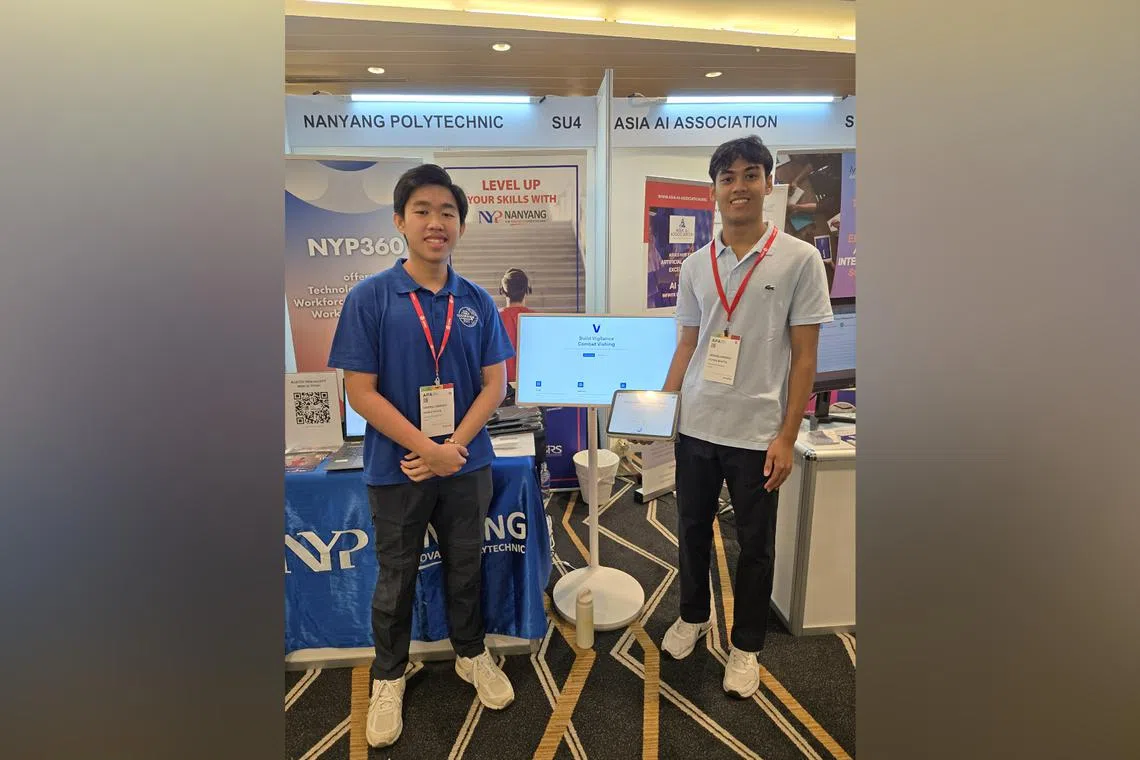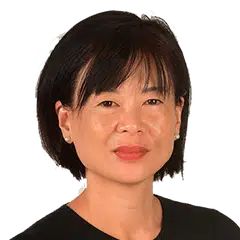AI-powered solutions developed by students to help SMEs tackle scams and other issues
Sign up now: Get ST's newsletters delivered to your inbox

Nanyang Polytechnic students Xavier Woon (left) and Rohan Senthil built a voice scam simulation program with five other schoolmates.
ST PHOTO: KRIST BOO
SINGAPORE – To see if a firm’s employees would fall victim to scam calls, cyber-security officers can upload the phone numbers of their co-workers onto an app and track how they respond.
The job of tricking the staff members falls on bot callers that speak multiple languages and are trained to impersonate any character, from a purveyor of lottery-win news to a bank fraud-prevention officer.
The dashboard of the artificial intelligence (AI)-powered app then displays how the unsuspecting cohort responded, how many gave away sensitive information, and who failed the test.
This solution, built by Nanyang Polytechnic (NYP) students Xavier Woon and Rohan Senthil – both 20 – with five other schoolmates, is one of the projects displayed at the Artificial Intelligence Festival Asia, where NYP announced plans to have students take up internships to solve real-life issues faced by small and medium-sized enterprises (SMEs).
The two-day event, held at Suntec Singapore Convention and Exhibition Centre from Jan 16, showcases various AI solutions, with talks and workshops. It is organised by the Association of Small and Medium Enterprises (ASME) and the Lifelong Learning Institute.
On Jan 17, NYP, Singapore Polytechnic and the Institute of Technical Education (ITE) signed memorandums of understanding (MOUs) with ASME to work on AI solutions for SMEs in a programme that also offers students practical experience and connects them with future employers.
Speaking at the event, Mr Tan Kiat How, Senior Minister of State for Digital Development and Information, underscored the Government’s belief and initiatives in AI.
He said: “Our competition is not new technology. It is someone else who can use the technology better and more productively.”
In 2023, Singapore’s digital economy contributed over 17 per cent to the economy, or about $113 billion.
The technology sector hires more than 208,000 workers, which is about 5 per cent of the workforce.
More than 70 per cent of tech workers are Singaporeans.
ITE chief executive Low Khah Gek said on the sidelines of the festival that the MOU formalises the work that its students are already doing during their trainee stints, giving the programme a sharper focus.
Third-year ITE student Chloe Chua, 19, exhibited an AI influencer video she produced for the marketing agency where she is currently an intern.
The school plans to send all its 240 students enrolled in AI-related courses each year for the internships.
The NYP team, which had spent half of the $4,000 they raised to create their app, said they have set up a company and are hoping the Government or a company will take their app to beta testing – a phase where software is tested by a larger group of users.
Mr Senthil said the ASME partnership with their school is a boost.
“Instead of doing projects and having them just disappear, we actually have the ability to make an impact, working on real problems that need real solutions.”



